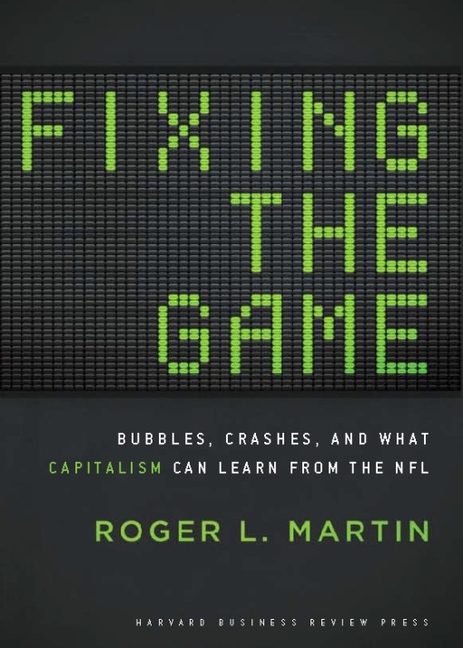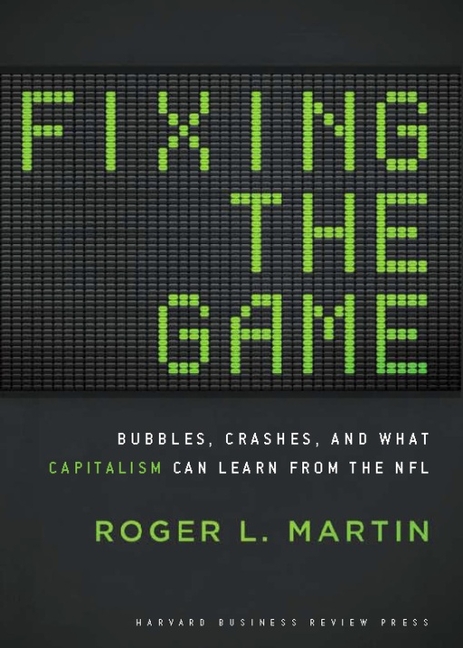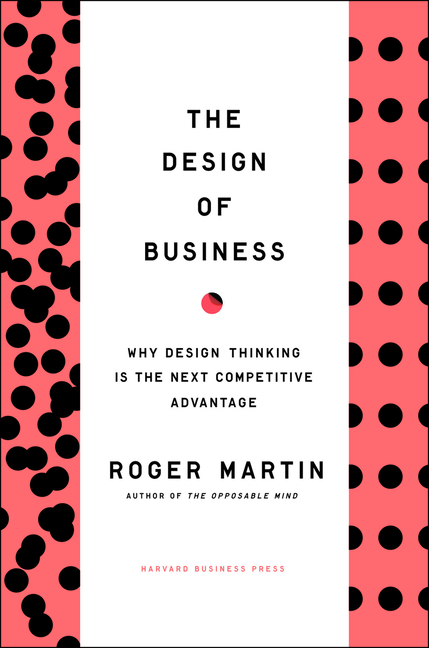Fixing the Game
May 17, 2011
With the NFL owners and players union currently in court over the lockout, it might seem like an odd time to use the NFL as an example for how to run anything. But current labor disputes aside, the NFL is by far the most successful business operating in sport today—it must be doing something right. And Roger L.
With the NFL owners and players union currently in court over the lockout, it might seem like an odd time to use the NFL as an example for how to run anything. But current labor disputes aside, the NFL is by far the most successful business operating in sport today—it must be doing something right. And Roger L. Martin has done a great job of highlighting one of those areas in Fixing the Game, released earlier this month by Harvard Business Review Press.
This is not Martin's first time out as an author. He also wrote The Opposable Mind, which was a runner-up in the leadership category of our 800-CEO-READ Business Book Awards in 2007, and The Design of Business, which won our Innovation & Creativity category two years ago. So, we're obviously big fans. He has a great knack for taking big and somewhat complicated ideas and distilling them for readers. He tackled brain and design issues in management in those previous books. Here is is addressing American capitalism's decades-long dogma that the purpose of a company is to maximize shareholder value.
The only way we can avoid increasingly frequent stock market meltdowns—and all the pain, suffering, and economic dislocation they cause—is to explore the theories that underpin American capitalism. Our theories about the fundamental goal of corporations and the optimal structure of executive compensation are fatally flawed and have created stock market upheavals. Acting on these theories, we have built structures into our capital markets system that threaten the future of American capitalism.
He begins to build his argument in the first chapter by taking on the flaws in Michael Jensen and Dean William Meckling 's agency theory, which has had a huge influence on American business since they first set it forth in their 1976 paper “Theory of the Firm: Managerial Behavior, Agency Costs and Ownership Structure.”
Like all good theories, agency theory had limitations and unexpected side effects, a fact its disciples have chosen to ignore (though Jensen himself has acknowledged them). In particular, the theory had the unfortunate effect of tightly tying together two markets: the real market and the expectations market.
The real market is the world in which factories are built, products are designed and produced, real products and services are bought and sold, revenues are earned, expenses are paid, and real dollars of profit show up on the bottom line. That is the world that executives control—at least to some extent.
The expectations market is the world in which shares in companies are traded between investors—in other words, the stock market. In this market, investors assess the real market activities of a company today and, on the basis of that assessment, form expectations as to how the company is likely to perform in the future. The consensus view of all investors and potential investors as to expectations of future performance shapes the stock price of the company.
Historically, professional managers played entirely within a single market: they were in charge of performance in the real market and were paid for performance in that real market. That is, they were in charge of earning real profits for their company and they were typically paid a base salary and bonus for meeting real market performance targets. As we've seen from the numerous recent examples of executives running their companies into the ground and walking away with huge paydays, this is obviously no longer the case. So where does the NFL come into all of this? Martin believes that "While it isn’t a perfect metaphor for business, it is a highly instructive one."
In both the NFL and in business, as the real game grew in stature and prominence, the expectations game became more and more sophisticated. In both cases, dedicated individuals emerged to ply their trade in the expectations market, becoming NFL bookies or bettors, capital markets brokers or investors.
But unlike American capitalism, the NFL looked thoughtfully at the relationship between the real game and the expectations game and identified a serious danger. After the 1962 season, Paul Hornung, the Green Bay Packers halfback and the league’s most valuable player (MVP), and Alex Karras, a star defensive tackle for the Detroit Lions, were accused of betting on NFL games, including games in which they played. Pete Rozelle, just a few years into his thirty-year tenure as league commissioner, responded swiftly. He suspended Hornung and Karras for a full season, and fined five Lions players who admitted to placing $50 bets on that year’s Championship game between the Packers and the Giants. Rozelle also created NFL Security—what is often called the NFL’s FBI—to work with law enforcement agencies across the country to detect and stamp out player involvement in betting on the NFL.
Why did Commissioner Rozelle take such a definitive stand against players and coaches betting on football? He must have envisioned the consequences if he didn’t. If you'd like to learn more and see what Martin suggests are the "five major things we need to do to heal American capitalism, to fix the game and get real again," you can download the first chapter of the book at the Harvard Business Review.




